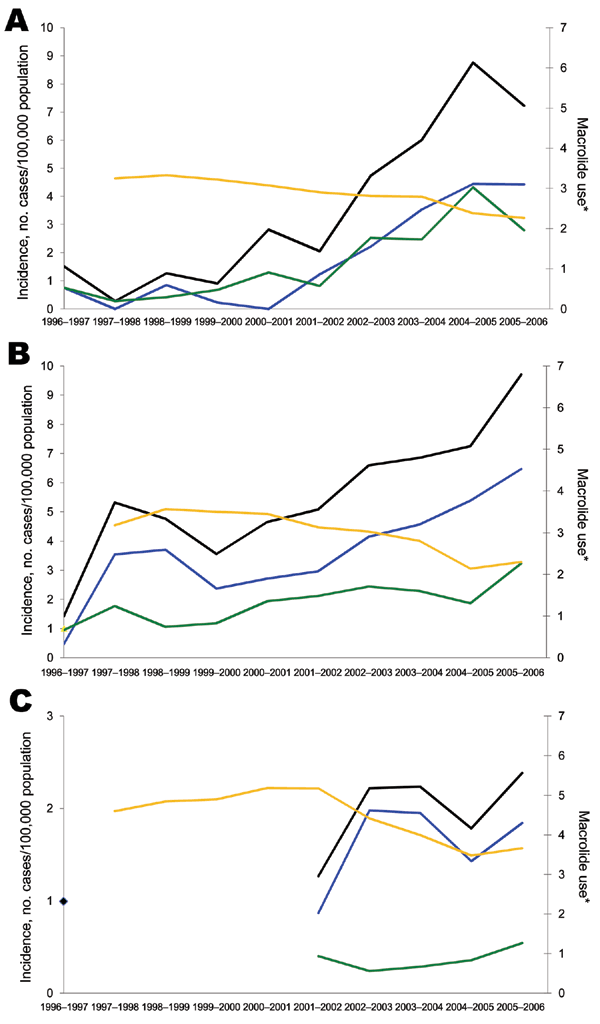Volume 16, Number 9—September 2010
Research
Pediatric Pneumococcal Serotypes in 4 European Countries
Figure 6

Figure 6. Incidence of serotype 19A invasive pneumococcal disease in children <5 years of age (black lines) showing breakdown of erythromycin-resistant (blue lines) versus -susceptible (green lines) infections and rate of macrolide use (gold line) in outpatient settings for A) Spain, B) Belgium, and C) France, 1996–2006. *Defined daily doses per 1,000 inhabitants per day.
1Current affiliation: Belgian Healthcare Agency, Brussels, Belgium.
Page created: August 28, 2011
Page updated: August 28, 2011
Page reviewed: August 28, 2011
The conclusions, findings, and opinions expressed by authors contributing to this journal do not necessarily reflect the official position of the U.S. Department of Health and Human Services, the Public Health Service, the Centers for Disease Control and Prevention, or the authors' affiliated institutions. Use of trade names is for identification only and does not imply endorsement by any of the groups named above.